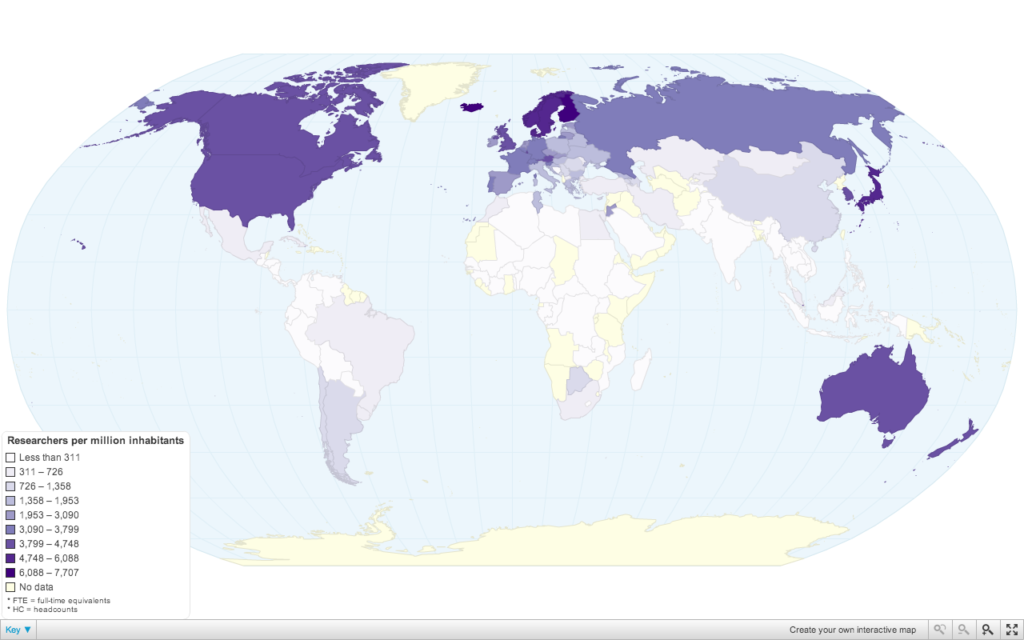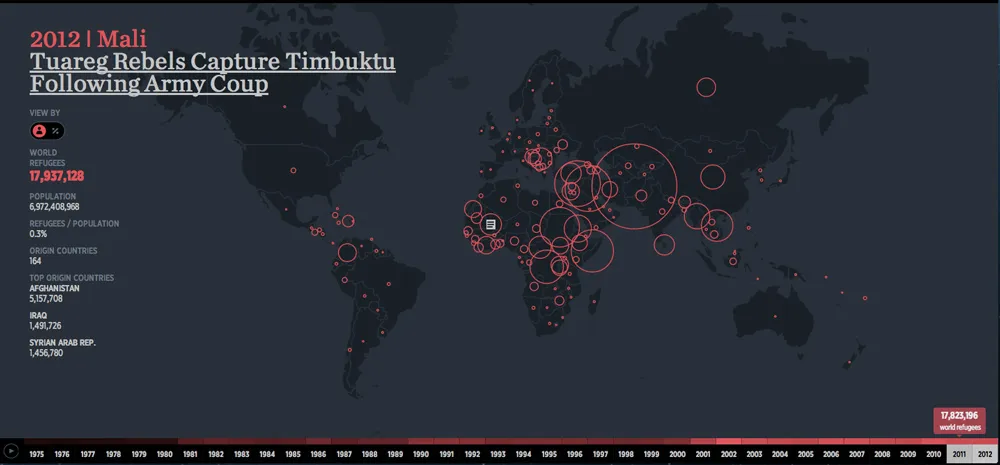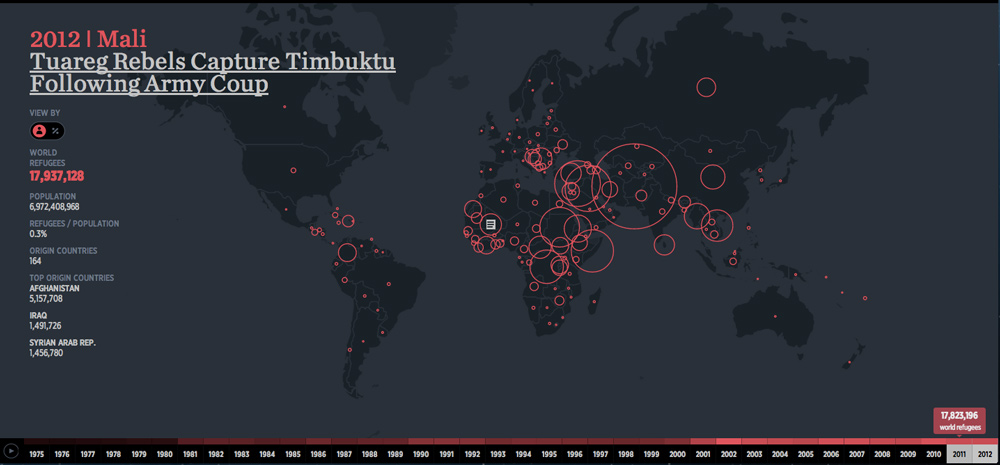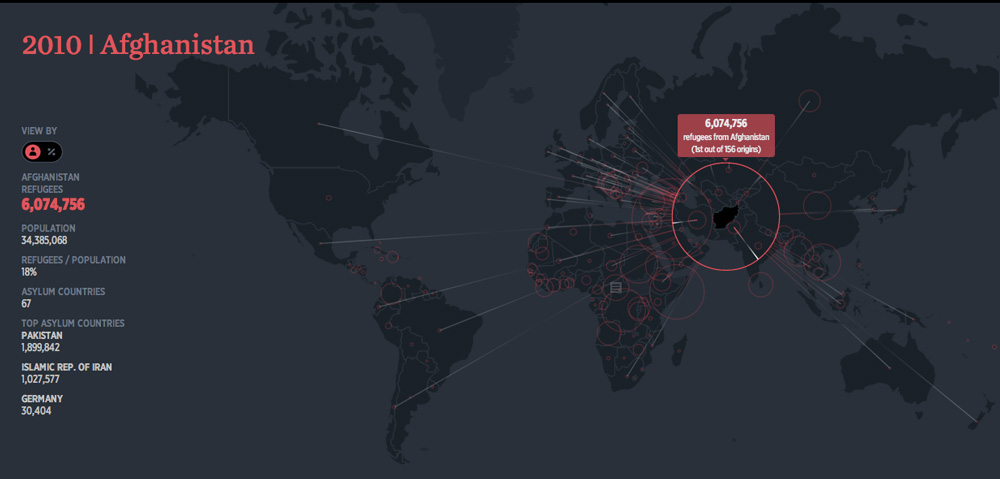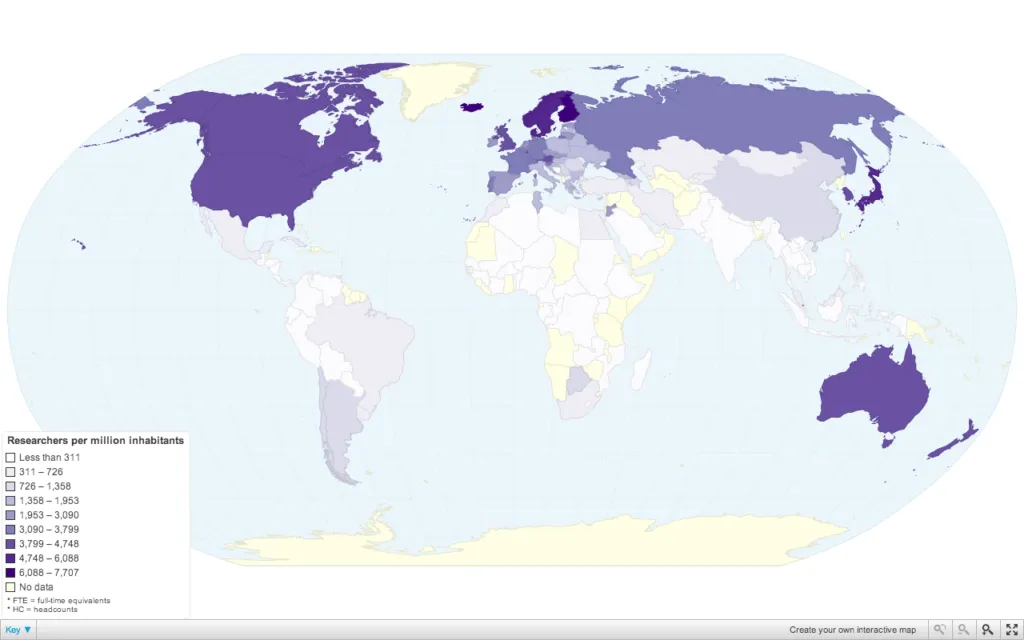
The Research Map of the World
In the last 100 years, the human race has come a long way, be it the innovations in transportation, communication or any other aspect of modern life. It is interesting to note the distribution of researchers across the world. In an increasingly science-driven planet, this map is a good indicator of which countries place a higher prize on R&D : “The Research Map of the World”
No prizes for guessing, the Scandinavian countries are on top of the researchers index. However, it is very important to note that these numbers are not absolute number of researchers in the country. For example, China with roughly 1100 researchers per million has a much higher number of researchers compared to Finland’s 7,707, which is the highest in the world.
What’s the total number of researchers in the world: 1,080.8 researchers per million inhabitants.
When we say Research today, i suppose a majority of us have a mental image of a researcher in a white coat sitting in front of a computer with some interesting looking equipment around them. PhD comics are rather quite popular on social media 😉 Nevertheless, these numbers are probably a clear indication of the “science-driven” world that we live in.
Data Source: United Nations Educational, Scientific and Cultural Organisation (UNESCO) Institute for Statistics
Visualization: ChartsBin.com


